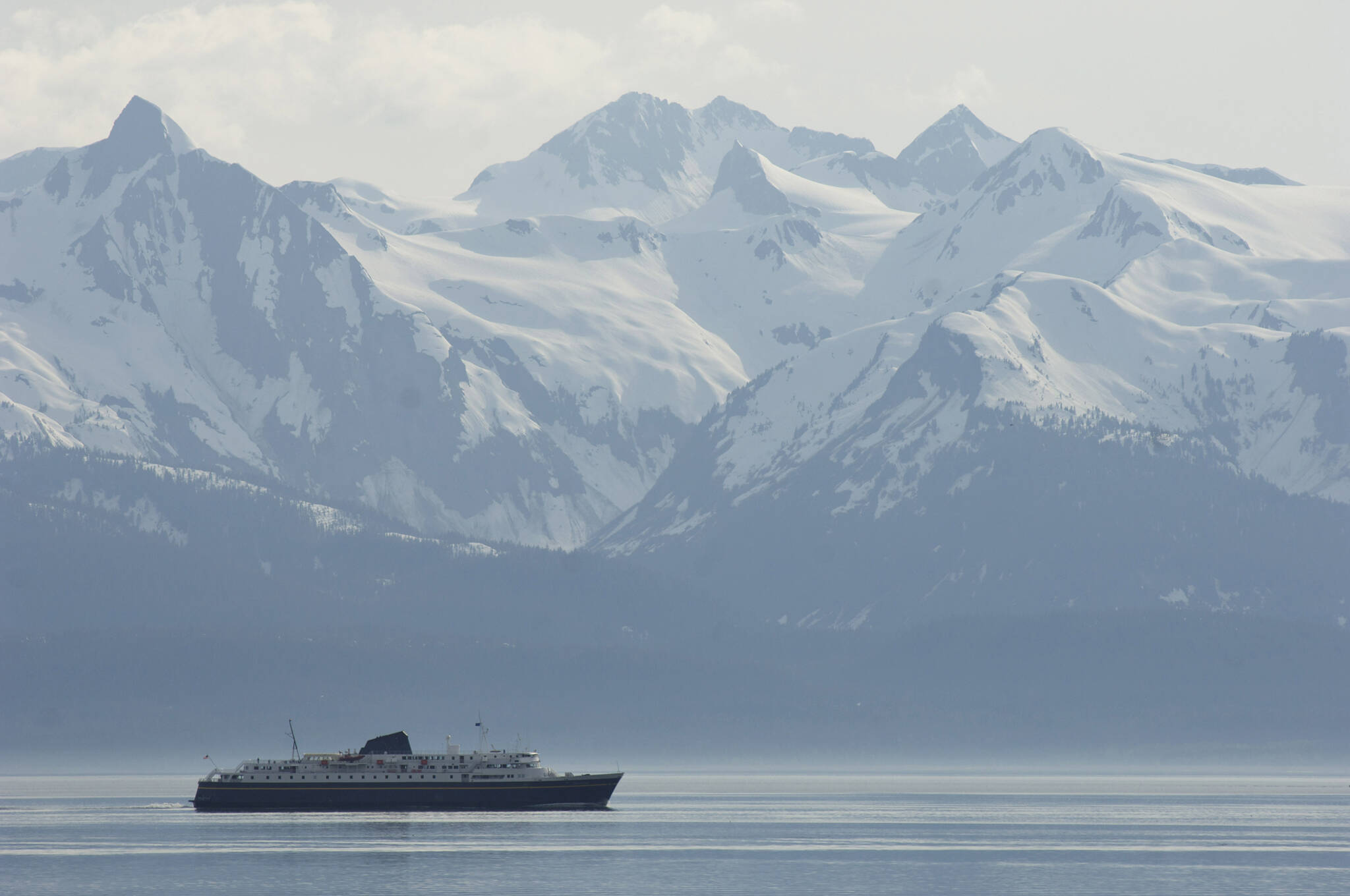By Win Gruening
It’s no secret that Alaska’s geography makes our state especially susceptible to rising transportation costs. Many communities have only one or two options to import goods needed on a daily basis. With recent increased inflation and escalation of fuel prices, freight rates are wreaking havoc on local economies.
According to Alaska Department of Labor’s July 2022 examination of Cost-of-Living statistics, because food must arrive by barge or air, Juneau’s grocery costs were 39% percent above the U.S. average and third-highest in the country among urban centers. Only Honolulu and Manhattan groceries cost more. Likewise, housing is 40% above the national average. Home heating fuel and gasoline prices in Juneau both have soared past $5-per-gallon recently.
Southeast Alaska uses barge shipments and limited ferry service to supplement air cargo, which is extremely expensive. Despite that, the skyrocketing cost of barge service and unreliability of ferry service has forced many businesses to raise prices well beyond the annualized rate of inflation. This depresses economic activity and further stretches family budgets.
Furthermore, the imbalance between imported and exported goods hurts many communities. Large freight movement in both directions helps pay transportation providers’ fixed costs. Otherwise the majority of roundtrip costs are shouldered by incoming freight. Hence the importance of fostering local manufacturers like breweries and fish processors.
In Alaska, freight prices are overseen by the federal Surface Transportation Board. But the board doesn’t directly regulate how much shippers charge; it only reviews the reasonableness of rates if a consumer files a formal complaint. Southeast Alaska barge rate increases have averaged 4.5% annually since 2006. Additionally, fuel surcharges routinely tacked on freight bills exceeded 20% during most of 2022.
The Juneau Chamber of Commerce commissioned a McDowell Group survey in 2017 addressing barriers to business development associated with freight transportation. Understanding its findings are critical to strengthening Juneau’s economy.
“Barge service is an essential component of Juneau’s freight transportation infrastructure, accounting for 95 percent of all in-bound freight, in terms of volume.”
“The cost of in-bound shipping is an important aspect of the cost of doing business in Juneau, particularly for construction firms, manufacturers, food and beverage providers, and retailers, among others.”
“However, out-bound freight service is critical to Juneau’s manufacturers, who sell to outside markets and draw money back into the local economy, providing basic industry activity.”
“Several survey respondents identified other barriers to their business, including lack of road connection to Juneau, frequency and capacity of ferry service for moving freight, and expensive internet and telephone, among others.”
“As a community without road access, Juneau does not have the full spectrum of over-land, marine, and air freight transportation opportunities….businesses lack the opportunity to choose the shipping methods that best meet their specific needs.”
“Longer-term, Juneau can make commitments and take steps to build road and port infrastructure needed to support community growth in the future.”
Barge service companies will always remain an important part of our transportation network. But we shouldn’t be held hostage by them. Historically, municipal port infrastructure has catered to the cruise industry, fishermen, and recreational boaters but could be developed to address additional commercial freight options as well.
Long-ignored, the Southeast Alaska Transportation Plan also addressed this issue years ago by advocating putting roads where you can and ferries where you must. The planned Lynn Canal Highway project is a perfect example. But politics of extreme environmentalism and ferry unions have stymied that common-sense effort for decades.
Some naively continue to promote increased subsidized ferry service to coastal communities. This is not realistic. Ferry system subsidies (which are much higher relative to roads) will never be acceptable to many Alaskans until serious efforts succeed in “right-sizing” the ferry system, minimizing expenditures, and increasing efficiency by building road links where possible.
Adding trucking (via road, obviously) to our freight network options would place downward pressure on what many contend is a freight monopoly, providing businesses with another reliable method to ship goods in and out of Juneau. This, in turn, will lower freight costs to neighboring communities and moderate Juneau’s cost-of-living.
Restarting the Juneau road project should be an absolute priority for our Congressional delegation, the Dunleavy administration, and our region.
After retiring as the senior vice president in charge of business banking for KeyBank in Alaska, Win Gruening became a regular Opinion Page columnist for the Juneau Empire. He was born and raised in Juneau and graduated from the U.S. Air Force Academy in 1970. He is involved in various local and statewide organizations

